Insulation helps to protect hot water pipes from extreme temperatures. It's also useful for reducing the condensation of these pipes, particularly in areas like attics, storage rooms, and finished basements. But what's the best type of insulation for copper hot water pipes? We have done a bit of research on these pipes to bring you the answer.
There are four types of insulation materials that you can use for your copper water pipes. They include:
- Rubber insulation
- Polyethylene foam
- Fiberglass insulation
- Mineral wool insulation
Overall, you'll find that all of these insulative materials are fairly inexpensive, though some are priced higher than others. The best material to use will depend on the size of your hot water pipes and your budget. Continue reading to learn more about them.

Insulation Materials for Copper Hot Water Pipes
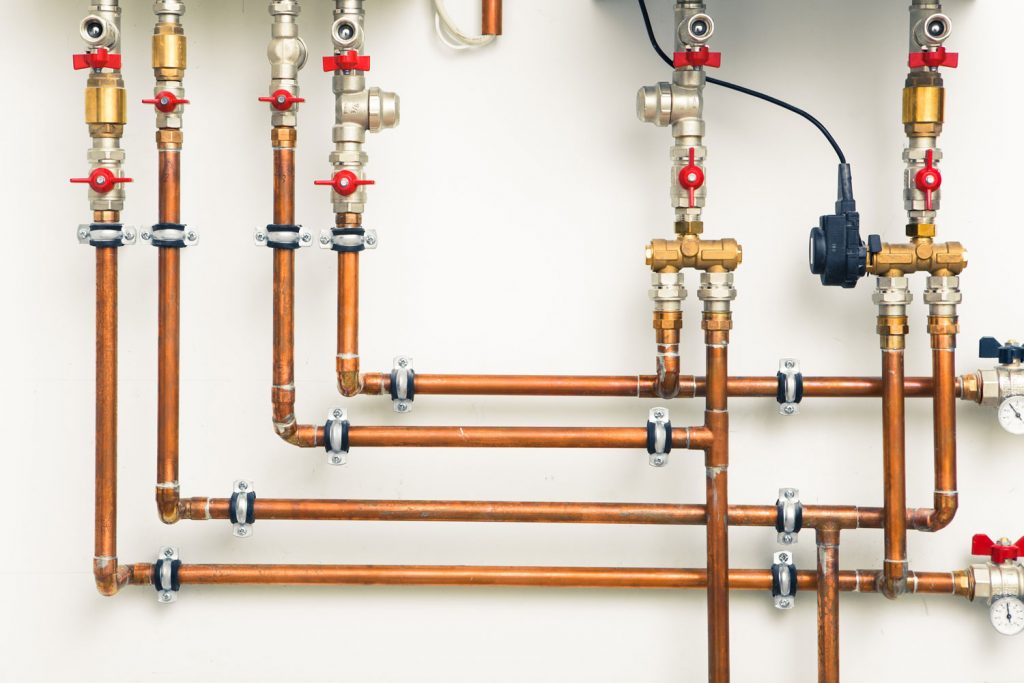
It's fairly easy to insulate a hot water copper pipe, and there are many material options from which you can choose. Here are a few ones commonly used for these pipes.
1. Rubber Insulation
Rubber pipe insulation can be used indoors as well as outdoors. However, it is recommended to be used outside more often than not. This insulation is the typical go-to option for copper pipes because it can contract and expand according to temperature changes. It is also extremely durable and affordable.
It's easy to install rubber insulation, and it prevents heat loss from hot water pipes as well. Rubber is an excellent choice if you're looking for pipe insulation that can be used on different fixtures and appliances.
Click here to see this rubber pipe insulation on Amazon.
2. Polyethylene Foam
Polyethylene foam is another popular copper pipe insulation material. The foam is not only affordable but also highly effective at helping the pipes regulate their temperature.
This foam is fairly simple to install and is designed with small slits at each end to allow you to slide it onto your pipe fittings. This foam wrapping can be attached to almost any pipe (though you may need to custom fit it to pipes that are larger than 2 inches in diameter).
Click here to see this polyethylene foam insulation on Amazon.
3. Fiberglass Insulation
Another popular and highly effective material for pipes is fiberglass insulation. This type of insulation is made of very finely-grained pieces of fiberglass and is one of the most affordable options that you can find.
You might be familiar with fiberglass rolls and batts, which are used commonly in interior walls, subfloors, and attics.
Fiberglass is also an excellent choice if you want to reduce pipe noise, which is why it's commonly used on water heaters.
Fiberglass pipe wrapping is a good option if your copper pipes are exposed to freezing temperatures during the winter. These sleeves are great for protecting pipes from rusting or cracking from condensation.
Click here to see this fiberglass pipe insulation on Amazon.
4. Mineral Wool Insulation
And then there is mineral wool insulation which may be more expensive, but it makes up for it in density per square inch. Mineral wool insulation may not be as well known as foam, fiberglass, rubber, or foam, but it is just as effective.
Mineral wool insulation is made from very fine, small pieces of mineral fiber that are woven together. This type of insulation is used both in homes and commercial buildings such as restaurants, hotels, and hospitals.
Mineral wool insulation has a high fire resistance and is great for soundproofing as well. However, its higher cost is one of its biggest drawbacks.
Should hot water copper pipes be insulated?
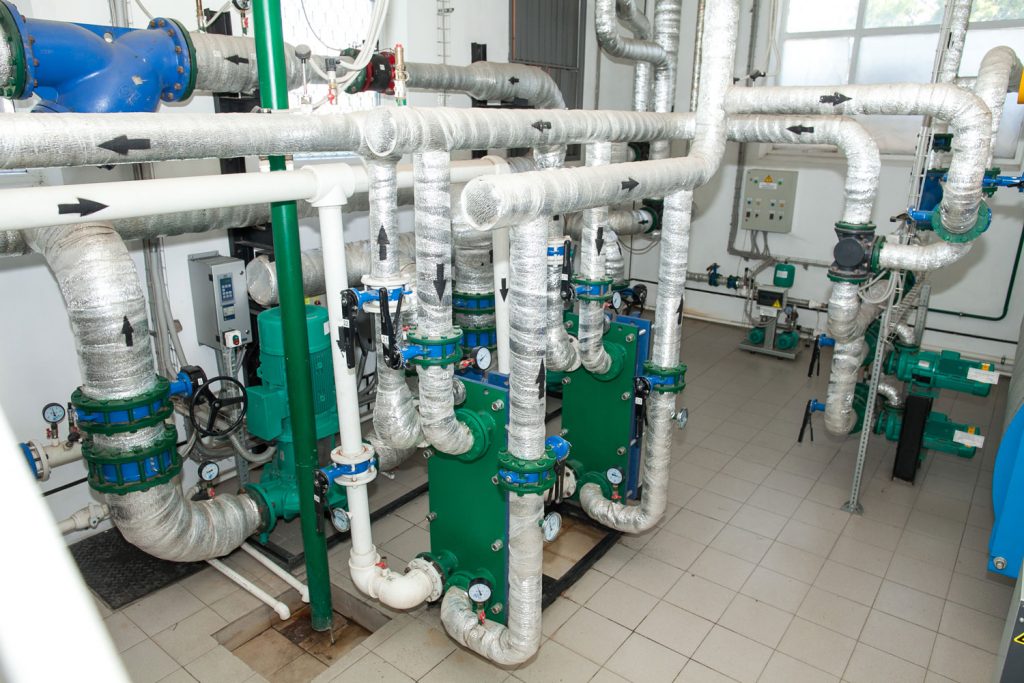
While hot water copper pipes don't necessarily have to be insulated, insulating them can provide several benefits. Let's look at the most notable ones.
Temperature Regulation Benefits
Insulating outdoor and indoor pipes is important to reduce heat loss—especially if they are in areas with extreme temperatures. Your home's pipes are responsible for carrying water around the house, which means the temperatures of these pipes will vary at any time.
Insulating pipes reduces inefficiency. You may notice a decrease in your energy costs and a shorter wait for hot water to come to your sinks and bathtubs.
Reduces Condensation
Condensation will naturally form when the outside surface of plumbing pipes is colder than the surrounding air. To reduce the possibility of condensation forming on pipes, pipe insulation is essential.
Metal pipes can leak, corrode, and rust without insulation. Insulation is also useful in interior spaces in your home, such as the laundry room or bathroom. It helps prevent injury from direct contact with pipes that are very hot or cold.
Helps Protect From Pipe Bursts
If you live in an area prone to extremely cold weather in the winter, you've definitely heard stories of pipes bursting and may have even experienced this yourself. Insulating your hot water pipes can help reduce the chance of this happening.
The insulation can protect the pipe from freezing weather conditions and will allow them to withstand colder temperatures for a longer period of time.
Reduces Noisy Pipes
Plumbing pipes are known to make strange and sometimes unsettling sounds as waste and water travel through them. It is easy to reduce noise from pipes in your home by insulating them with a dense protective material such as foam or rubber insulation.
How do you insulate a hot water copper pipe?
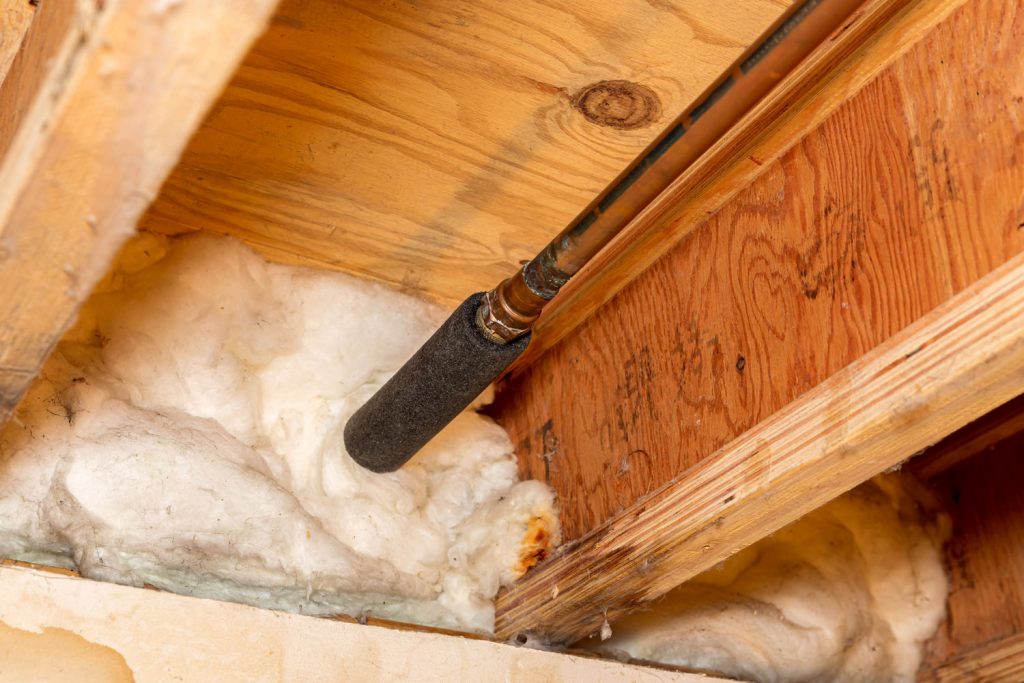
Most insulation created for hot water copper pipes comes in the form of tubular sleeves. These pipe sleeves are relatively easy to install and can be installed in a matter of minutes.
Oftentimes, you'll simply need to remove the sleeve from the packaging, and others may have adhesive backing material that allows them to stick to the pipes better. You'll need to remove this material before placing the sleeve onto the pipe.
Can pink insulation touch hot water pipes?
When people refer to "pink insulation," they are often referring to fiberglass batt or roll insulation. And while this insulative material can be used on hot water pipes, it's ideally used for floors, walls, and ceilings.
It's not ideal to place the fabric directly against a hot water pipe, as it can char the insulation, leaving it burned, peeling, and a challenge to remove. However, you can buy fiberglass insulation specifically designed for hot water pipes.
These pipe covers fit easily over the pipe and are coated with chemicals to prevent them from molding or becoming charred. However, if you need a solution fast and don't have time to go to the store, you can cut a few pieces of fiberglass insulation to wrap around the pipe.
However, before doing so, be sure to wrap the pipe in either high-temperature flue tape or rubberized flex tape to protect the fiberglass insulation.
Click here to see this Flex Tape on Amazon.
Will foam pipe insulation keep pipes from freezing?
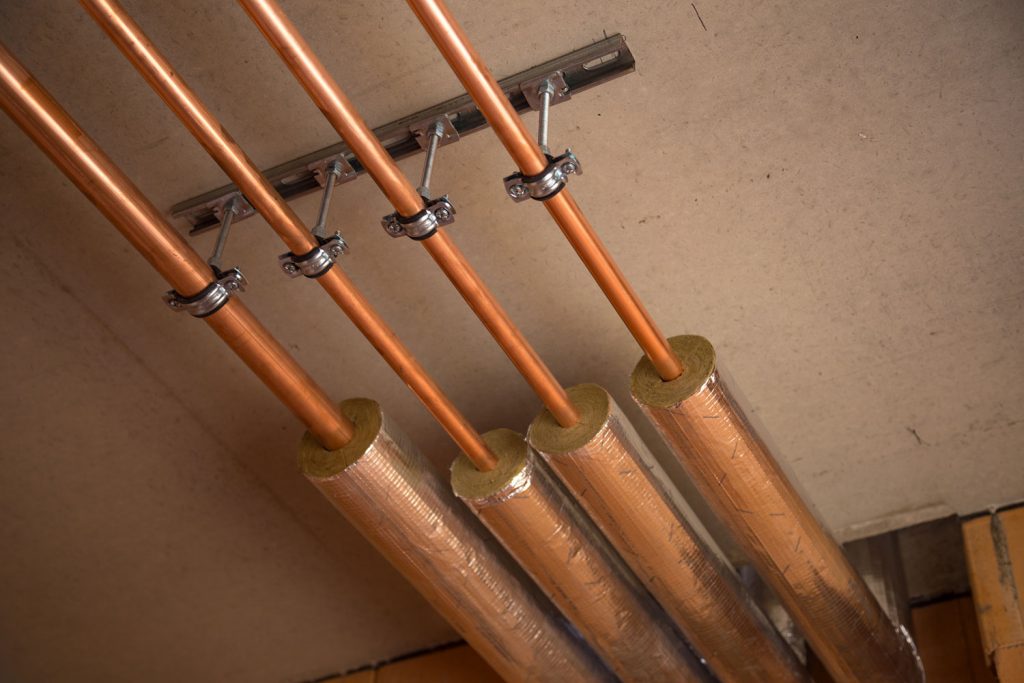
No, the insulation can not prevent pipes from bursting. It allows them to withstand colder temperatures for longer periods of time before freezing.
The best way to prevent your water pipes from freezing in the winter is to simply keep them running. Oftentimes, when a hot water pipe burst in the winter, it's because the pipe has not been utilized in several days, weeks, or months.
As a result, any standing water in the pipe freezes, and when a water source is turned on in the home again, the force of the running water clashes with the frozen water in the pipe, causing it to burst.
This is why plumbers stress that you leave your sink or bathtub dripping in the winter. Doing so will prevent the pipes from bursting if you're going to be gone for an extended period of time.
Wrapping things up
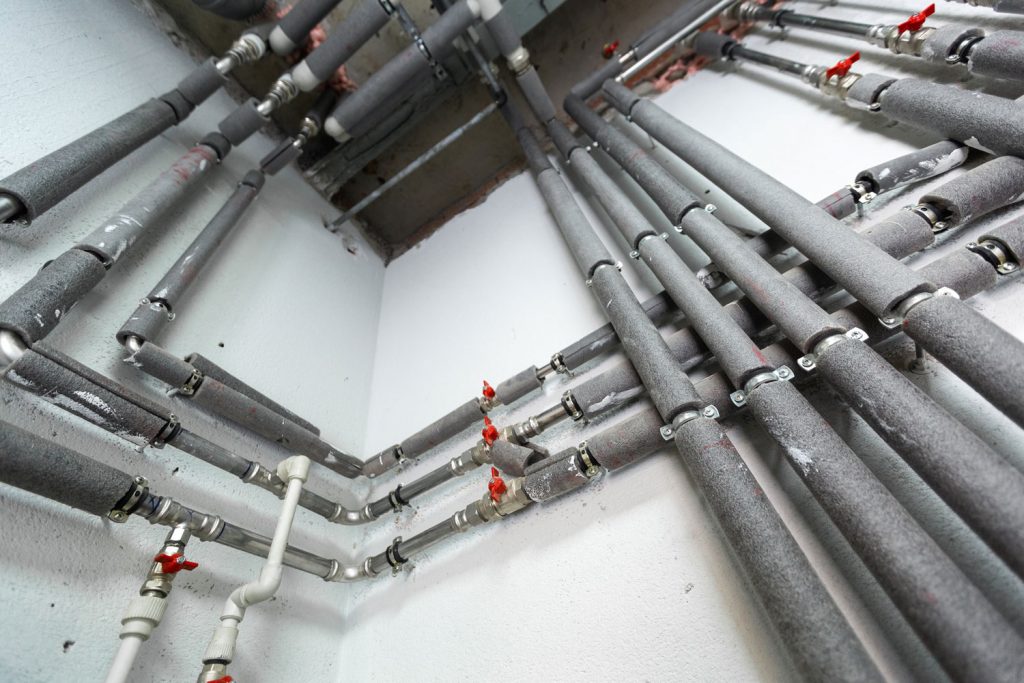
If you're worried about your copper hot water pipes freezing, insulating them with foam or rubber insulation can help to minimize the chance of this happening. You can purchase this insulation online or at any local home repair store.
Before you go, be sure to check out these other posts:




